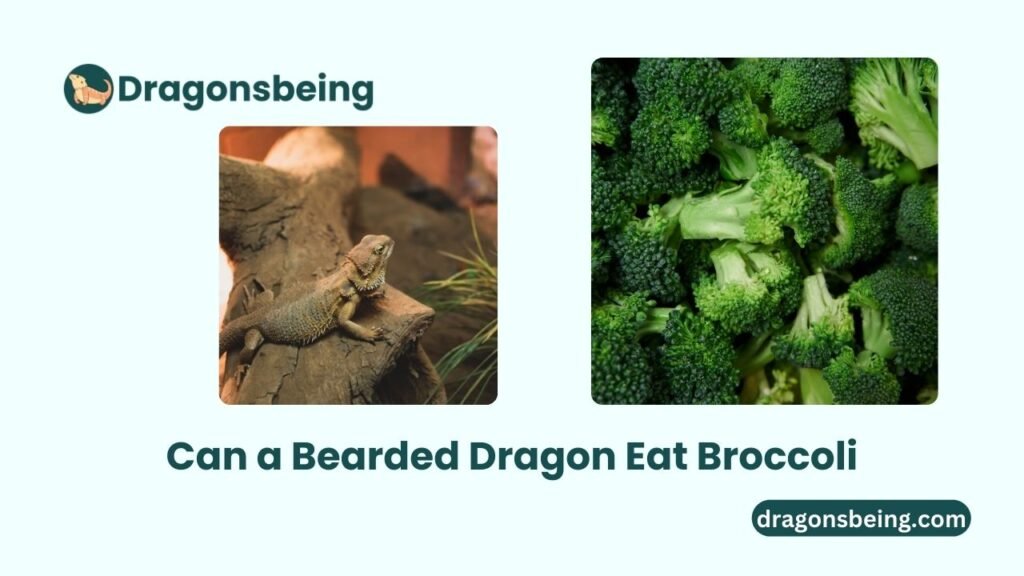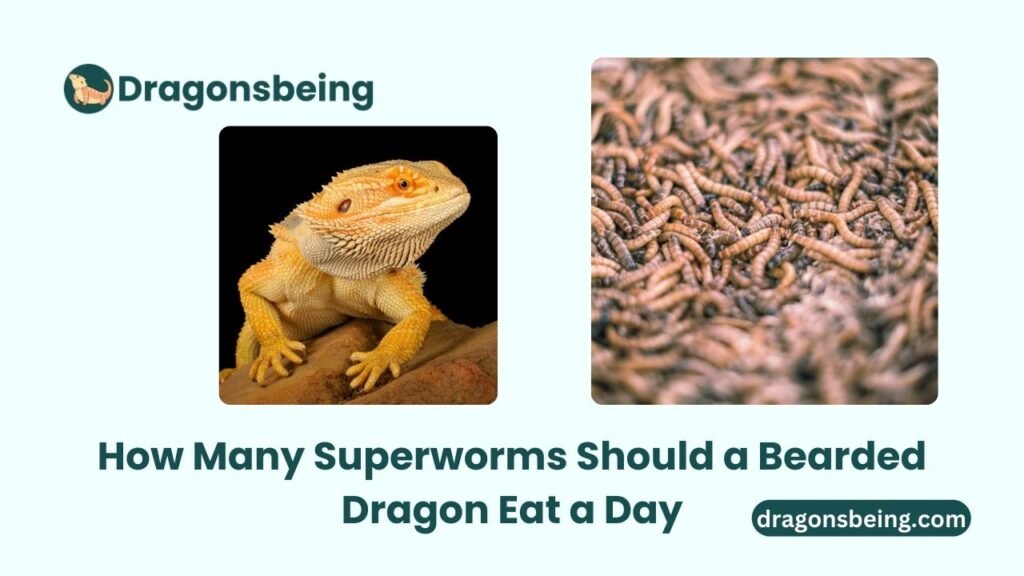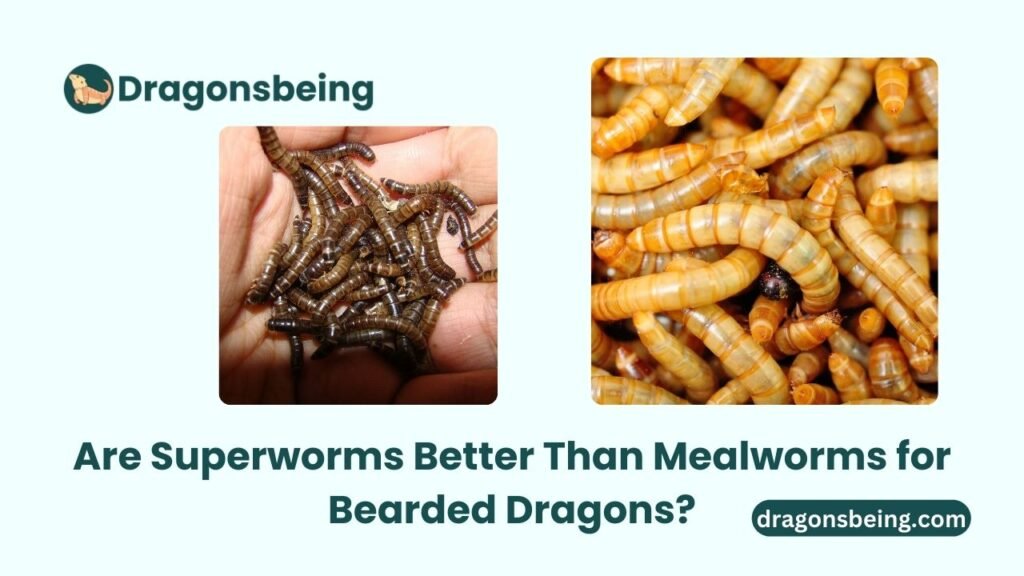Yes, bearded dragon eat broccoli, but it should only be given in moderation. Overconsumption may lead to health issues due to its high oxalate content.
Bearded dragons are popular pets known for their unique diet and friendly nature. Owners often wonder about suitable vegetables for their reptiles.
Broccoli is a common choice, but it requires careful consideration. While it offers nutritional benefits, it should not dominate their diet.
A balanced meal plan includes a variety of vegetables, fruits, and protein sources. Understanding the right proportions helps ensure your bearded dragon remains healthy and happy.
This article explores the benefits and risks of feeding broccoli to your bearded dragon, helping you make informed decisions for your pet’s well-being.
Nutritional Needs Of Bearded Dragons
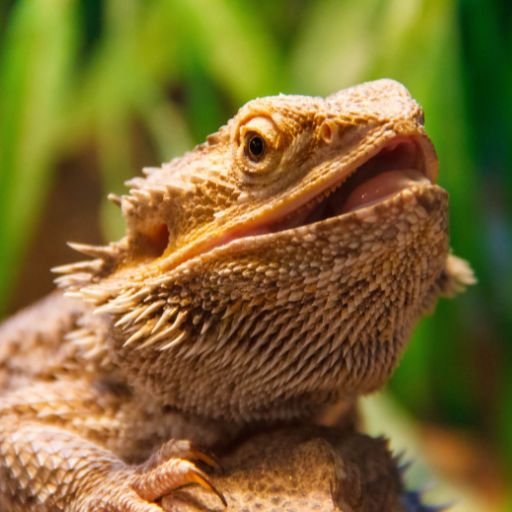
Bearded dragons require a balanced diet for optimal health. Their nutritional needs include a mix of protein, vitamins, and minerals. Understanding these needs helps ensure your pet thrives.
Essential Vitamins And Minerals
Bearded dragons need various vitamins and minerals. Here’s a quick overview:
| Nutrient | Importance | Sources |
|---|---|---|
| Calcium | Supports bone health and prevents metabolic bone disease. | Collard greens, supplements |
| Vitamin D3 | Aids calcium absorption and bone growth. | Sunlight, UVB lighting |
| Vitamin A | Essential for vision and immune function. | Carrots, sweet potatoes |
| Phosphorus | Works with calcium for strong bones. | Meat, insects |
The Role Of Vegetables In A Balanced Diet
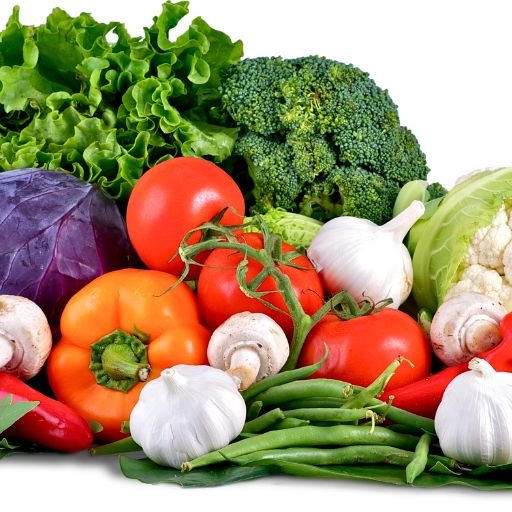
Vegetables play a vital role in a bearded dragon’s diet. They provide essential nutrients and fiber. Here are some key points:
- Vegetables offer hydration and variety.
- Include leafy greens like kale and collard greens.
- Limit high-oxalate vegetables like spinach.
- Broccoli can be fed occasionally, in small amounts.
Balancing vegetables with protein is crucial. A good ratio is:
- 75% vegetables
- 25% protein (insects or meat)
Monitor your bearded dragon’s health regularly. Adjust the diet as needed to ensure they receive all nutrients.
Broccoli: Nutritional Profile
Broccoli is a popular vegetable among many pet owners. It offers essential nutrients that can benefit a bearded dragon’s health. Understanding its nutritional profile helps in making informed feeding choices.
Vitamins And Minerals In Broccoli
Broccoli is rich in various vitamins and minerals that support bearded dragons. Here’s a breakdown:
| Nutrient | Amount per 100g |
|---|---|
| Vitamin A | 623 IU |
| Vitamin C | 89.2 mg |
| Calcium | 47 mg |
| Iron | 0.73 mg |
| Fiber | 2.6 g |
These nutrients support growth and immune health. Vitamin A aids vision and skin health. Vitamin C boosts the immune system.
Potential Risks Of Overfeeding Broccoli
Feeding too much broccoli can lead to health issues. Here are some potential risks:
- High Oxalate Levels: Broccoli contains oxalates. These can bind calcium, affecting absorption.
- Digestive Problems: Too much broccoli can cause gas or bloating.
- Imbalance in Diet: Relying heavily on broccoli can lead to nutrient deficiencies.
Limit broccoli to occasional treats. Ensure a balanced diet with various vegetables. Always monitor your bearded dragon’s health closely.
Feeding Broccoli To Bearded Dragons
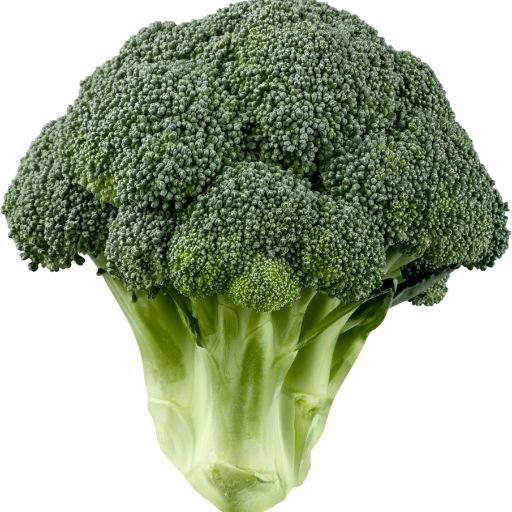
Bearded dragons can eat broccoli, but moderation is key. This vegetable offers some nutrients, but it also contains oxalates. Oxalates can hinder calcium absorption. Too much broccoli may lead to health issues.
How To Properly Introduce Broccoli
Start by introducing broccoli slowly. Follow these steps:
- Wash the broccoli thoroughly.
- Chop it into small, manageable pieces.
- Mix it with other leafy greens.
- Observe your dragon’s reaction.
Watch for any signs of discomfort. Always offer fresh food. Avoid frozen or canned broccoli.
Recommended Serving Sizes And Frequency
Serving size and frequency matter. Here are some guidelines:
| Age of Bearded Dragon | Serving Size | Frequency |
|---|---|---|
| Juvenile (up to 6 months) | 1-2 small florets | Once a week |
| Adult (6 months and older) | 2-3 small florets | Every other week |
Always provide a balanced diet. Include other vegetables and insects. Variety promotes better health.
Risks Of Feeding Broccoli To Bearded Dragons
Feeding broccoli to bearded dragons poses certain risks. While it has some nutrients, it can also lead to health issues. Understanding these risks helps ensure the well-being of your pet.
Goitrogens In Broccoli And Thyroid Function
Broccoli contains goitrogens. These substances can disrupt thyroid function. A compromised thyroid can affect your bearded dragon’s growth and energy levels.
- Goitrogens can interfere with iodine absorption.
- They may lead to hypothyroidism.
- Signs of thyroid issues include lethargy and weight gain.
Limiting broccoli can help prevent thyroid problems. Always consult a vet for dietary advice.
Oxalates And The Risk Of Kidney Stones
Broccoli also contains oxalates. High oxalate levels can increase the risk of kidney stones. Bearded dragons are vulnerable to these stones.
| Oxalate Levels in Common Vegetables | Low Oxalate | Moderate Oxalate | High Oxalate |
|---|---|---|---|
| Broccoli | No | No | Yes |
| Kale | No | Yes | No |
| Collard Greens | Yes | No | No |
Signs of kidney stones include:
- Pain while urinating
- Frequent urination
- Loss of appetite
Monitor your bearded dragon for these symptoms. Consult a vet if you notice any issues.
Healthy Alternatives To Broccoli
Bearded dragons can eat a variety of vegetables. While broccoli is a common choice, other options are healthier. Some vegetables are safer and more nutritious. Here are some great alternatives to consider.
Safer Vegetable Options
Many vegetables can provide essential nutrients. Here’s a list of safe vegetable options:
- Carrots: Rich in beta-carotene.
- Bell Peppers: High in vitamins A and C.
- Squash: Easy to digest and tasty.
- Collard Greens: Great source of calcium.
- Mustard Greens: Packed with nutrients.
These vegetables can be served raw or cooked. Always chop them into small pieces. This makes it easier for your bearded dragon to eat.
Creating A Diverse And Nutritious Diet
A balanced diet is essential for your bearded dragon. Include various vegetables for better nutrition. Here are some tips:
- Mix different colors of vegetables.
- Include leafy greens regularly.
- Rotate vegetables to avoid boredom.
- Offer occasional fruits as treats.
Use a mix of vegetables in each meal. This provides a wide range of vitamins and minerals. A diverse diet keeps your bearded dragon healthy and happy.
| Vegetable | Benefits |
|---|---|
| Carrots | Boosts vision and immune health. |
| Bell Peppers | Supports skin health and digestion. |
| Squash | Provides hydration and energy. |
| Collard Greens | Strengthens bones and teeth. |
| Mustard Greens | Improves overall health. |
Preparing Vegetables For Your Bearded Dragon
Feeding your bearded dragon healthy vegetables is important. Proper preparation ensures safety and nutrition. Follow these steps to prepare vegetables like broccoli for your pet.
Best Practices For Washing And Chopping
Clean vegetables thoroughly before serving. This removes dirt and pesticides. Follow these best practices:
- Wash under running water for at least 30 seconds.
- Soak in a vinegar solution for 5-10 minutes.
- Chop into small, bite-sized pieces.
- Avoid using a knife that has been used for meat.
Cooked Vs. Raw: What’s Best For Your Pet?
Both cooked and raw vegetables have benefits. Understanding these will help you choose the best option.
| Type | Benefits | Drawbacks |
|---|---|---|
| Raw |
|
|
| Cooked |
|
|
Choose raw or cooked based on your dragon’s needs. Always introduce new foods gradually. Monitor for any adverse reactions.
Monitoring Your Bearded Dragon’s Health
Proper nutrition keeps your bearded dragon healthy. Monitoring their diet helps prevent health issues. Knowing what they eat is vital. Broccoli is a common question among owners.
Signs Of A Balanced Diet
A balanced diet is crucial for your bearded dragon’s well-being. Look for these signs:
- Healthy weight: Not too skinny or overweight.
- Active behavior: Playful and alert throughout the day.
- Bright eyes: Clear and vibrant, not dull.
- Good appetite: Eats a variety of foods eagerly.
- Regular shedding: Skin sheds smoothly without problems.
When To Consult A Veterinarian
Consult a veterinarian if you notice any of these signs:
- Weight loss: Noticeable decrease in body weight.
- Persistent lethargy: Lack of energy for over a few days.
- Changes in appetite: Refusal to eat for an extended period.
- Abnormal droppings: Unusual color, consistency, or smell.
- Signs of distress: Excessive hiding or aggression.
Regular check-ups help maintain health. A vet can offer dietary advice. Be proactive about your bearded dragon’s health.
Frequently Asked Questions About Can a Bearded Dragon Eat Broccoli
Can Bearded Dragons Eat Broccoli Raw?
Yes, bearded dragons can eat raw broccoli, but it should be given in moderation due to its high oxalate content.
How Often Can I Feed Broccoli?
Broccoli should be offered as an occasional treat, ideally once every two weeks, to maintain a balanced diet.
Is Broccoli Safe For Baby Bearded Dragons?
Baby bearded dragons should avoid broccoli. Their diet should focus on insects and softer vegetables for optimal growth.
What Are The Benefits Of Broccoli For Bearded Dragons?
Broccoli provides vitamins A and C, plus fiber, which can support overall health when fed in moderation.
Can Broccoli Cause Health Issues?
Overfeeding broccoli can lead to calcium absorption issues. Always balance it with other vegetables and nutrients.
Should I Cook Broccoli For My Bearded Dragon?
Cooking broccoli is not necessary. Raw is best, but ensure it’s chopped into small pieces for easy consumption.
Conclusion
Feeding your bearded dragon broccoli can be a healthy choice in moderation. This vegetable offers essential nutrients but should not dominate their diet. Always balance it with other vegetables and insects. Regularly observe your pet’s reaction to new foods. Prioritize a varied diet for optimal health and well-being.

Hi, I’m Dr. Michelle Mayers, a veterinary professional with a deep passion for animal health and well-being. Over the years, I’ve dedicated my life to caring for animals and helping pet owners better understand their furry, feathered, or scaly companions. On my blog, Dragonsbeing, I share insights, tips, and stories that aim to educate, inspire, and connect with fellow animal lovers. Join me at Dragonsbeing as we explore the fascinating world of veterinary care and celebrate the special bond between humans and animals!
